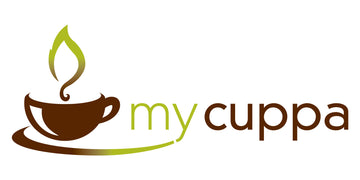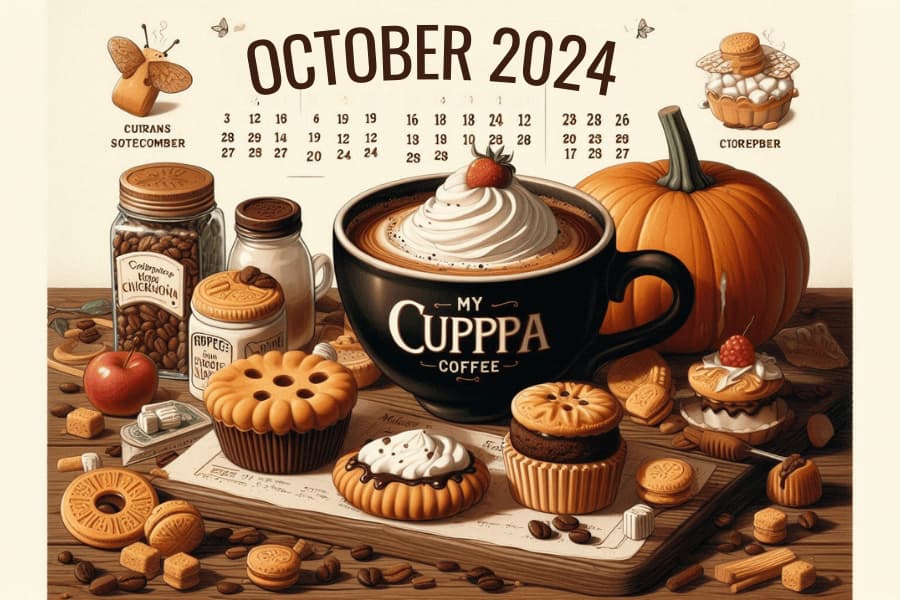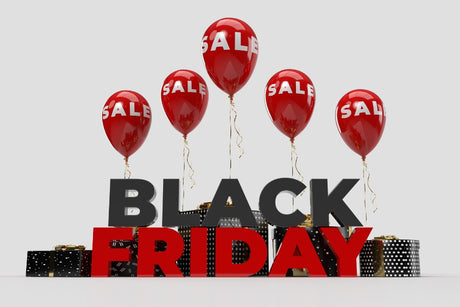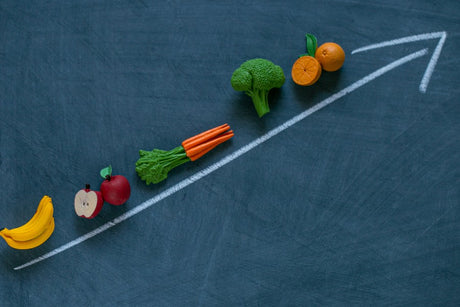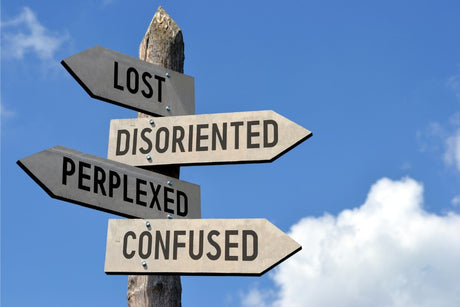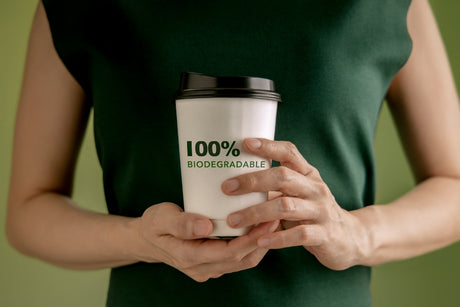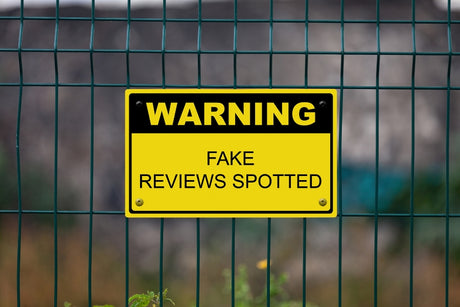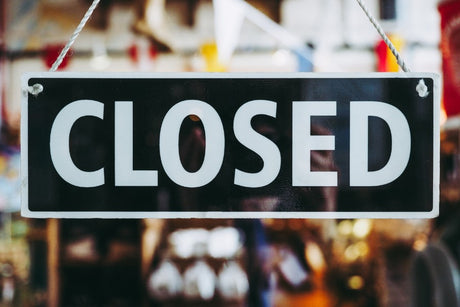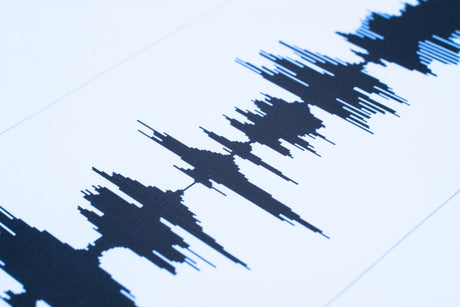October 2024
What a spectacular "own goal" scored by our mischievous supermarkets - caught out allegedly abusing their market power to offer "fake discounts" at what is likely to go down in history as the "worst possible time to be greedy".
Both coffee and cocoa are experiencing their "all-time highest pricing" moment. With all other commodities already peaking and heading downward from pre-pandemic highs, coffee and cocoa are still reaching for the stars, running against the broader commodities trend.
Coffee is up 40% since the start of the year, and let's be frank here, folks, it was already at a high mark before the calendar flipped over.
As you may have noticed, we've been navigating through a series of price increases over the past few months.
These adjustments are a direct response to the arrival of new crops at significantly higher prices than the previous season, a situation that's shaking the coffee industry.
No amount of scale or volume helps here – look at the global giant Lavazza – their green bean costs have risen 80% in 3 years.
The market might be starting to stabilize, and the entire coffee industry hopes that's the case; if it keeps climbing, people will stop drinking!
But it's not just coffee and cocoa prices that have changed; we think the taste could be a lot better.
This month's Roaster's Rant explains why your 2024 coffee differs from any previous year's, not in a good way.
Secret Label is a fruity delight with sublime sweetness.

October 2024 Secret Label
October's Secret Label is a delicious fruity delight with incredible sweetness, amazing marzipan, rich milk chocolate, and lovely cocoa nibs at the long finish.
Grab it here Secret Label

Roaster's Rant - 2024 is the year of crap tasting coffee
What caused the sudden drop in coffee quality in 2024 - can you taste it?
Well, there are a few reasons - persistent adverse weather events around the globe, dire shortages, farmers not needing to try as hard for quality to sell crops, huge price spikes, and retailers being squeezed and unable to pass on rising costs and choosing lower quality levels.
We are certainly seeing an increase in callers explaining why they are no longer visiting cafes and instead starting their DIY coffee journey requesting helpful advice on where to start. Is it the cost-of-living crisis or a perception of inferior value?
Then we are also hearing from friends and family forced to head back into the office, and the stories about not being able to find a half-decent coffee nearby are quite unexpected – what happened to Melbourne's 'gold-plated coffee reputation'?
It was overdue to get out and road test a few coffees, so I ducked into local strip shopping villages where highly rated independent cafes often reside. What I tasted was not particularly good, and maybe that's my fault for not getting out enough.
All these experiences have left me wondering how the average coffee drinker might also judge these beverages.
For me, it is always really difficult to calibrate, and I have trouble working out if I am being too harsh or critical - after all, cafe experiences are not Q-grader scoring events; there is so much more about café patronage than trying to pick faults in a cup.
Ultimately, I formed a view or opinion that the prepared beverages I had tasted on my journey over the last few months were collectively bland, as if they had been "built to meet a minimum coffee menu brief".
Could it be true that 'coffee quality in hospitality segments is nose-diving in response to escalating cost challenges and the fight for survival'?
Before reading on, please remember that the coffee industry has many different segments, so you can't just throw a net over the entire market and assume it's the same everywhere.
Some hospitality venues serve up amazing coffees in the same way that many coffee brands make great-tasting products.
How did we get here?
Over the last three years, a dynamic power shift has occurred from demand (retailers and buyers) to supply (growing and exporting).
These days, growers of coffee can afford to be less "diligent" in preparing their product because they know it will still command higher prices and sell, regardless of cup taste.
Coffees have been traded based on quality for the last 30 years; now, it's a complex deal of price and availability instead of quality.
With chronic shortages and higher prices, even the lowest grades not normally seen in Australia are finding a home at desperate coffee brands trying to hold onto shrinking margins.
With the global coffee market claiming shortages of raw coffee exist almost everywhere, the supply side (farmers or growers) don't have to try as hard for quality or relax their posture on quality, knowing they can easily sell crops at good prices.
Every industry experiences cyclical conditions, and history tells us that coffee, like oil, will run like a rollercoaster up and down.
This current high cycle is the first time that every coffee-growing country is in a supply deficit simultaneously, and that's one of many new precedents.
Coffee and Cocoa reach for the stars
The last two years have seen coffee and cocoa mirror each other as both continue to hit historic highs with no signs of retreat. In contrast, all other global commodities have passed their post-pandemic peaks and trending downwards.
Yet coffee and cocoa are still defying the odds without any fundamental forecast of downward pricing expected.
According to the experts, coffee beverages are too cheap in Australia.
A few months ago, we wrote an article about the outrage generated by news outlets when reporting $6 cafe coffees. Back then the primary factors putting pressure underneath increased costs of brewed coffee were more about the influence of inflationary effects upon rent, labour and energy costs rather than ingredients such as roasted coffees.
But the rise in coffee prices is not helping and the talk has already shifted to the next level at $7 cups of coffee. One industry veteran even took a punt on the $10 cups of coffee in 5 years' time. Blimey.
Historically, cafes tend to be scared when contemplating price changes for fear of their regulars taking their patronage next door or across the road.
With all this competition from saturated markets in the Australian café scene, coffee beverage prices are kept at the lowest pricing segment globally.
In response, hospitality leaders are trying to educate consumers about why café coffee should be more expensive by comparing a latte to other beverages such as juice, tea or bottled water. The argument being more labour, skills and "hands" are involved in making a great tasting coffee.
Nobody likes to see prices rising - not the cafe owner, their customer or the supplier (roaster).
In response to higher raw coffee prices, our domestic importers have been changing their strategy to bring more of the lower quality lots into Australia as they minimize the risks of holding expensive coffees that won't sell.
Importers must also consider a longer-term view when purchasing their raw coffees, as selling might take up to 12 months. Some of these lower-quality lots may differ from what was once known as export quality generally expected (or accepted) in Australia.
Some coffee brands select lower-grade coffees as a "last resort" to manage their squeezed margins in this difficult market.
Buyers of low-grade coffees typically have locked-in customers such as wholesale and hospitality or supply contracts like contract roasting or private label.
It's a big risk, and some don't have a choice - adapt or fail.
Raw coffee importers are not bringing in the same range of coffees this year. Most have almost no stock unless it was pre-sold prior to shipping from origin.
Taste is never talked about now and this has become the biggest change we have noticed in the way coffee is traded.
Even yesterday, a raw coffee broker dismissed my question about cup score by saying "you should be lucky we have coffee to sell, it's that hard". That's never going to be a good sign when your supplier totally disregards the taste and focuses only on price and availability.
Is great-tasting coffee a thing of the past?
We don't think so and it will get harder to find.
Great-quality lots are still being grown, processed, and sold, and it's by no means an Armageddon moment in the history of coffee.
However, the current difficulties are like turning back the coffee clock to 1980 when the entire coffee supply chain had no real ideas about quality and coffee traded as a cash crop.
In 2024, tough economic conditions have forced a lowering of quality.
But is this limited to just cafe coffee? Hell no.
A profound shift in sourcing quality that we see this year often spans many segments of the coffee industry, so it’s not fair to pick a fight with hospitality.
However, in response to rising input costs, many hospitality venues are begging for cheaper products, and this trend has manifested into bigger problems of unsatisfactory value in many different hospitality offerings, not just coffee.
A recent article by Coffee Intelligence highlighted an interesting fact—Australians are one of the largest per capita consumers of coffee at home.
Apparently, we love our DIY coffee experiences so much that it's still a booming market for equipment makers and coffee sellers.
With some hospitality venues switching to survival mode, the "right pricing" of ingredients appears to alienate even more of their regulars and drive increased levels of commercial distress.
For us at mycuppa, it's business as usual.
We have built up our known and trusted supply chains over 20 years of trading. While we pay high prices for our ingredients, energy, packaging, and shipping, it's critically important to maintain our quality standards as a business.
In response to industry-wide quality changes, our approach is to be more vigilant when selecting raw coffees. If the offering does not meet our standard, we won't range it, and that is why you may see some of our long-standing origins experience a short-term "sold out" sign.
Nobody gets a second chance in the ruthless online realm, and we are only as good as our last cup.
